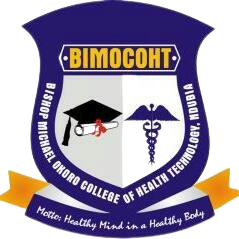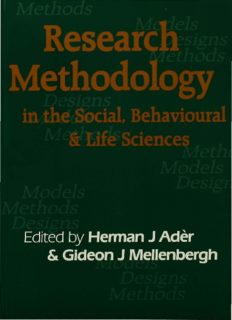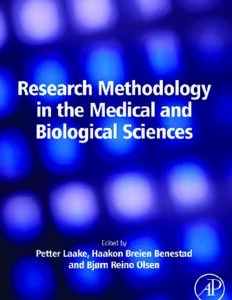Research Methodology in the Social, Behavioural and Life Sciences_ Designs, Models and Methods
“Research Methodology in the Social, Behavioral, and Life Sciences: Designs, Models, and Methods” is a comprehensive textbook that offers a thorough exploration of research methodologies used in various scientific disciplines. Written by Herman J. Ader and Gideon J. Mellenbergh, this book serves as an invaluable resource for students, researchers, and professionals in the social, behavioral, and life sciences seeking to conduct high-quality research.
Description
“Research Methodology in the Social, Behavioral, and Life Sciences: Designs, Models, and Methods” is a comprehensive textbook that offers a thorough exploration of research methodologies used in various scientific disciplines. Written by Herman J. Ader and Gideon J. Mellenbergh, this book serves as an invaluable resource for students, researchers, and professionals in the social, behavioral, and life sciences seeking to conduct high-quality research.
Key features of “Research Methodology in the Social, Behavioral, and Life Sciences” include:
1. Multidisciplinary Approach: The textbook adopts a multidisciplinary approach, covering research methodologies used across a wide range of scientific disciplines, including psychology, sociology, education, biology, and health sciences. It addresses commonalities and differences in research practices across these fields, providing readers with a comprehensive understanding of research methodology.
2. Comprehensive Coverage: The book covers various aspects of research methodology, including research design, sampling techniques, data collection methods, data analysis techniques, and interpretation of research findings. It discusses both quantitative and qualitative research methods, as well as mixed methods approaches, allowing readers to choose the most appropriate method for their research questions.
3. Conceptual Frameworks: “Research Methodology in the Social, Behavioral, and Life Sciences” introduces readers to key conceptual frameworks and theoretical perspectives that inform research design and data analysis. It discusses different research paradigms, such as positivism, interpretivism, and critical realism, and their implications for research practice.
4. Practical Guidance: The textbook provides practical guidance on every stage of the research process, from formulating research questions to writing research proposals and disseminating research findings. It offers step-by-step instructions, practical tips, and examples to help readers navigate the complexities of conducting research in the social, behavioral, and life sciences.
5. Ethical Considerations: “Research Methodology in the Social, Behavioral, and Life Sciences” addresses ethical considerations in research, including principles of research ethics, informed consent, confidentiality, and integrity in research conduct. It emphasizes the importance of conducting research in an ethical and responsible manner, ensuring the protection of participants’ rights and welfare.
6. Critical Thinking and Evaluation: The textbook encourages critical thinking and evaluation of research literature, teaching readers how to critically appraise research studies, assess methodological quality, and interpret research findings. It provides guidelines for evaluating the validity, reliability, and generalizability of research findings, empowering readers to become discerning consumers of research.
7. Updated Content: “Research Methodology in the Social, Behavioral, and Life Sciences” incorporates updates to reflect current trends, developments, and innovations in research methodology. It discusses emerging research methods, technological advancements, and methodological challenges facing researchers in the contemporary research landscape.
Overall, “Research Methodology in the Social, Behavioral, and Life Sciences: Designs, Models, and Methods” is a comprehensive and authoritative resource for students and researchers in the social, behavioral, and life sciences. Its multidisciplinary approach, comprehensive coverage, conceptual frameworks, practical guidance, ethical considerations, critical thinking focus, and updated content make it an indispensable textbook for research methodology education and practice.




Reviews
There are no reviews yet.